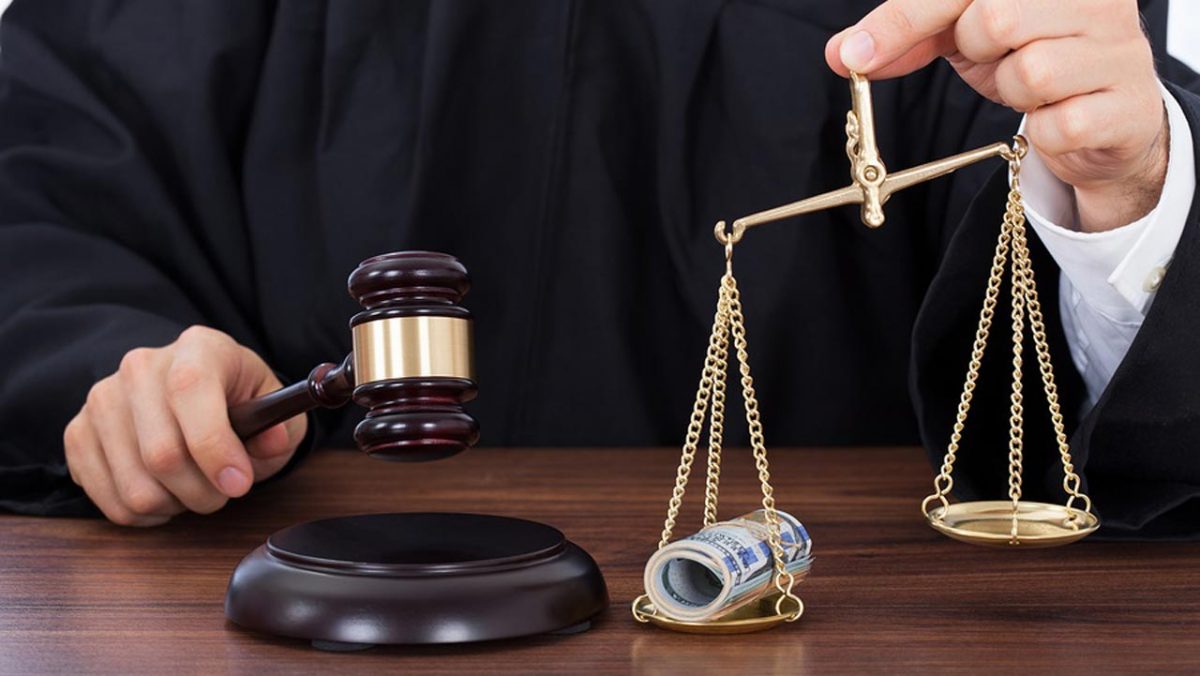

What does it mean?
Starting today, September 5, regular courts will no longer accept new cases from the National Anti-Corruption Bureau of Ukraine and the Specialized Anti-Corruption Prosecutor’s Office.
Proceedings currently examined in “regular” courts will be transferred to the HACC.
Notorious courts will now have no influence on interim measures and investigative action in high-profile corruption cases.
The Anti-Corruption Court alone will determine whether the property of individuls involved in NABU-SAPO cases should be seized and transferred to the Asset Recovery and Management Agency.
The first instance of the HACC will include 7 judicial benches, the appeal instance—4 benches. There will also be six investigative judges.
What cases will the High Anti-Corruption Court handle?
The High Anti-Corruption Court is supposed to accept all motions and indictments in cases under its jurisdiction (23 counts of the Criminal Code of Ukraine). Under the current law, the 38 judges are also supposed to receive thousands of old corruption-related cases, accumulating in courts for years on all the Criminal Code counts under the jurisdiction of the HACC.
According to the State Judicial Administration, there are over 3.5 thousand of such corruption-related cases that can potentially be transferred to the High Anti-Corruption Court according to the legislative criteria of crime elements, special subject and amount of damage inflicted.
Many of these cases have already expired or will expire soon, which will automatically release corrupt officials from criminal liability. Moreover, excessive workload will essentially block the court’s effective work for years. As a reminder, one of the key reasons for creation of a separate Anti-Corruption Court was fair justice within reasonable time.
On August 29, the President filed draft law No. 1025 for the second time, which would resolve this issue. Everyone hoped that the Parliament would find the time to approve this document during the first days of its work, eliminating this problem before the HACC came into operation. However, the Parliament will probably look at it on September 10. After the positive decision is made, the Anti-Corruption Court will be able to focus exclusively on new high-profile corruption-related cases and thus prove its effectiveness.
According to the State Judicial Administration, there are over 3.5 thousand of such corruption-related cases that can potentially be transferred to the High Anti-Corruption Court according to the legislative criteria of crime elements, special subject and amount of damage inflicted.
Who are famously investigated by the NABU and the SAPO?
As of July 31, the NABU and the SAPO reported on 369 accused individuals and 212 cases sent to the court. The jurisdiction of the NABU and the SAPO includes judges, Prosecutor General and prosecutors, customs officers, members of parliament, ministers, former president, heads of the Naional Bank, State Property Fund, members of the Central Electoral Commission, High Council of Justice and the Anti-Monopoly Committee and many others. High-ranking officials, to put it briefly. For instance, they include:
- judges of Kyiv Administrative Court Pavlo Vovk (head), Yevhenii Ablov and Ihor Pohribnichenkio, as well as judge of Suvorovskyi Court of Odesa Ivan Shepitko (charged with interference with the activity of a public official, abuse of power, interference with the activity of the HQCJ and the HCJ, forgery in office, neglect of duty);
- Dmytro Vovk of the National Commission for State Regulation of Energy and Public Utilities (Rotterdam+: energy consumers have allegedly suffered damage in the amount of UAH 18.87 billion);
- Head of the State Audit Service Lidiia Havrylova (possible declaration of false information: “knowingly entered false information into annual e-declarations for 2015 (over UAH 2.86 million) and 2016 (over UAH 4.67 million)”;
- former MP Mykola Martynenko (possible embezzlement at a state-owned enterprise);
- former head of the State Fiscal Service Roman Nasirov (abuse of power);
- former MP Oleksanr Onyshchenko (possible embezzlement while mining and selling natural gas);
- former MPs Borys Rozenblat and Maksym Poliakov (the “amber case”);
- Odesa mayor Hennadii Trukhanov (puchase of the Kraian plant: “acquisition of property by means of grave abuse of power”).
Why do we need the High Anti-Corruption Court?
In 2015, the National Anti-Corruption Bureau of Ukraine (NABU) was created. Since then, the Bureau has started investigating the crimes of high-ranking corrupt officials: members of the Parliament and various councils, ministers and their deputies, heads of central executive agencies, judges, high-ranking prosecutors and police officers, etc. The procedural control in these cases was assigned to the Specialized Anti-Corruption Prosecutor’s Office—an independent structural unit of the Prosecutor General’s Office.
As of the end of 2018, the NABU detectives were working on 727 criminal proceedings. Out of the 171 NABU-SAPO proceedings sent to the court, there was not even a preliminary hearing in 49. According to the research of the Public Control Council under the NABU, regular courts cannot examine NABU-SAPO cases. It is evident that the unreformed judiciary stalls judicial examination in the Bureau’s cases.
TI Ukraine looks forward to the Anti-Corruption Court coming into operation and believes that the newly created institution will be able to administer fair justice and make the right decisions in high-profile corruption cases, as well as drive changes in the entire judicial system.
TI Ukraine looks forward to the Anti-Corruption Court coming into operation and believes that the newly created institution will be able to administer fair justice and make the right decisions in high-profile corruption cases, as well as drive changes in the entire judicial system.






